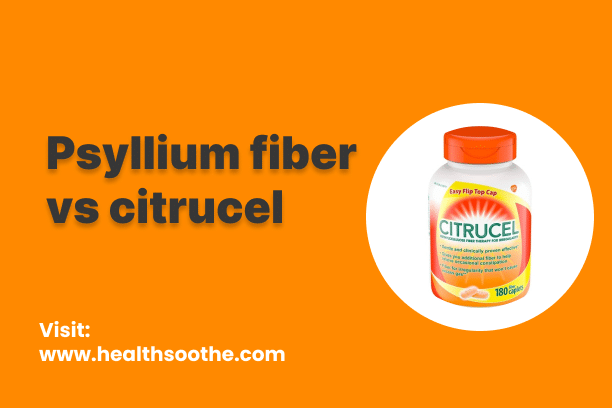Citrucel, an over-the-counter (OTC) medication, incorporates methylcellulose fiber as its active component and holds FDA approval for alleviating sporadic instances of irregular constipation. However, it is not recommended for regular usage in cases of chronic constipation. Prolonged constipation enduring beyond seven days might indicate an underlying health issue of greater concern.
Citrucel is available in two formulations: oral tablets and a powder designed for dissolution in liquid. Both variations have FDA endorsement for usage by adults and children aged 6 years and above. Before administering Citrucel to children under 6 years of age, it is advisable to seek guidance from a healthcare professional.
How Does Citrucel Work?
Citrucel contains methylcellulose, a soluble fiber derived from plants. Since the human body cannot break down methylcellulose fiber, it remains intact in the intestines without undergoing fermentation.
The mechanism of Citrucel involves increasing the bulk of stool and promoting water entry into the bowel. This action facilitates the passage of stools that are typically hard and dry, making them easier to expel.
Moreover, Citrucel encourages more regular and complete bowel movements, typically occurring within 12 to 72 hours after initiating its use. Results in relieving constipation with Citrucel may vary among individuals. While some may experience relief with a single dose, others may require multiple doses of Citrucel powder or tablets over several days.
It is important to adhere to the instructions provided on the product label or as directed by a healthcare professional for optimal effectiveness.
Read Also: Top 6 Characteristics To Look For in a Drug Rehab Center
Pros and Cons of citrucel vs psyllium
Citrucel:
Pros:
- Methylcellulose fiber in Citrucel is gentle on the stomach and generally well-tolerated.
- It helps relieve occasional constipation effectively by increasing stool bulk and promoting regular bowel movements.
- Citrucel is available in convenient forms like tablets and powder for easy consumption.
Cons:
- Citrucel may not be as effective for all individuals, especially those with chronic constipation or severe digestive issues.
- It might take longer for Citrucel to produce noticeable results compared to some other laxatives.
- Some users may experience mild side effects such as abdominal discomfort or cramping.
Psyllium:
Pros:
- Psyllium is a natural source of soluble fiber derived from Plantago ovata seeds.
- It is highly effective in relieving constipation and promoting regular bowel movements by absorbing water and increasing stool bulk.
- Psyllium may help lower cholesterol levels and regulate blood sugar, offering additional health benefits beyond digestive health.
Cons:
- Psyllium may cause bloating, gas, or abdominal discomfort in some individuals, especially if not taken with sufficient water.
- It can interfere with the absorption of certain medications if not taken separately.
- Psyllium husk may not be suitable for everyone, particularly those with swallowing difficulties or allergies to psyllium.
Differences Between citrucel vs psyllium and atorvastatin
Citrucel:
Citrucel is a fiber supplement primarily used to relieve constipation and improve digestive health.
Psyllium:
Psyllium is another fiber supplement used to relieve constipation, promote bowel regularity, and improve overall digestive health.
Atorvastatin:
Atorvastatin is a medication used to lower cholesterol levels and reduce the risk of cardiovascular events such as heart attacks and strokes.
Alternative to citrucel vs psyllium
Wheat Dextrin (e.g., Benefiber):
Wheat dextrin is a soluble fiber derived from wheat starch. It dissolves completely in liquid and is tasteless, making it easy to incorporate into beverages and foods. Benefiber is a popular brand of wheat dextrin supplement available in powder and caplet forms.

